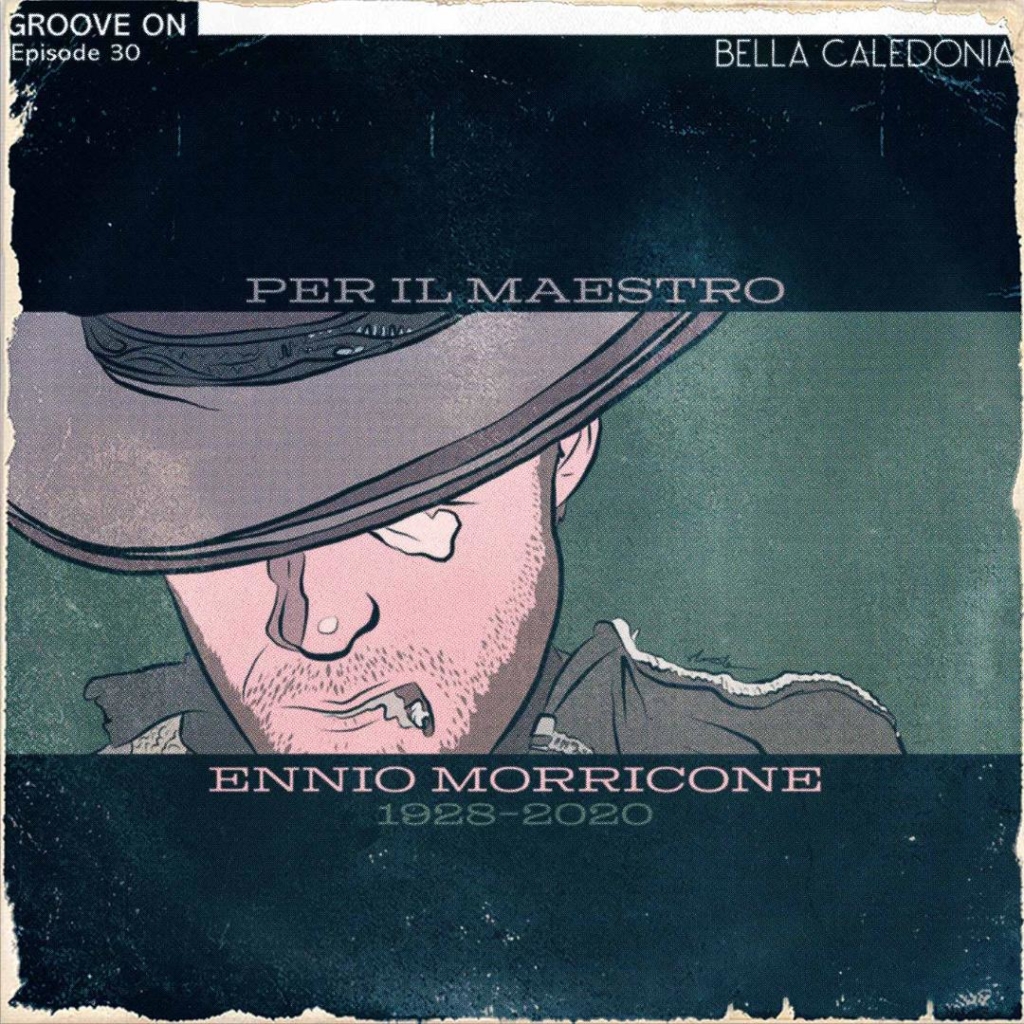In memory of il maestro, Ennio Morricone, November 10 1928 – July 6th 2020


Morricone composed the soundtrack to over 500 films. He brought together many different musical forms, including classical, jazz, pop, rock, electronic and avant-garde, as well as various ethnic musical styles, to create something entirely new. Yet even though Morricone was incredibly productive, he is best remembered for the music to just four films. Those soundtracks, explored over this episode, are why he is considered to be perhaps the most influential film composer of the 20th century.
He began composing soundtracks in the early sixties, however it was not until he scored Sergio Leone’s A Fistful of Dollars in 1964 that his work gained attention. Here Morricone used traditional orchestral elements sparsely, while added such things as a male voice choir, whistling, whip cracks, twangy guitars, Mariachi trumpets and military drumming. Five tracks are featured: ‘Titoli (from A Fistful Of Dollars)’, ‘Almost Dead’, ‘The Chase’, ‘The Result’ and ‘Theme From A Fistful Of Dollars)’.
The following year, Morricone scored the follow-up film, For A Few Dollars More. He built on the sound palette of A Fistful Of Dollars, expanding it to bring in castanets, Spanish guitar and, notably in the main theme, a Jew’s harp. Here leitmotifs – short, constantly recurring musical phrases associated with a particular person, place, or idea – become more prominent, especially on the two pieces featuring the sound of a pocket watch. Four tracks are featured: ‘For A Few Dollars More’, ‘Carillon’, ‘The Vice Of Killing’ and ‘The Showdown’.
Leone’s Dollars Trilogy is rounded out by the most-acclaimed of the three films, 1966’s The Good, The Bad and The Ugly. While the soundtrack steers closer to traditional instrumentation, the music is used in a non-traditional manner. Rather than working as background to the film, this soundtrack becomes a prominent part of the film, it becomes foreground. While Morricone and Leone explored this previously, for example with the pocket watch, it is here that the marriage is most effective.
The music is at times searingly bombastic, while at other times hauntingly beautiful or achingly desolate. The tracks featured are: ‘The Good, The Bad And The Ugly’, ‘The Sundown’, ‘Sentence’, ‘The Bridge Of Cords’, ‘The Strong’, ‘The Desert’, ‘The Carriage Of The Spirits’, ‘Marcetta’, ‘History Of A Solder’ and ‘Death Of A Solder’. These are taken from a vinyl release from the early 2000s of the full soundtrack, rather than the more common Capitol Records release. Look for Italian reissues, featuring the full seven and a bit minute long version of the ‘The Trio’ (‘Il triello’).
Over the course of the Dollars Trilogy, Morricone showed unparalleled creativity and defined the sound of a genre. The diverse range of styles he used created a sonic patchwork more reflective of the make-up of the Old West than the traditional mono-culture of white Western orchestration. If we consider the broad scope of the humanity of that time and place, we can see it echoed in the range of Morricone’s diverse musical palette.
His themes from these films are among the most well-known of film themes. Indeed, it’s possible that the theme for The Good, The Bad And The Ugly has become more well-known than the film itself.
Two years following that film, Morricone worked with Leone again, on 1968’s Once Upon A Time In The West. The score builds on the Trilogy, while moving closer towards a traditional film soundtrack. It’s a worthy footnote to an incredible period of creativity. The tracks included are ‘Once Upon A Time In The West’, ‘Man With A Harmonica’, ‘As A Judgement’ and ‘Farewell To Cheyenne’.
The episode ends with two of the most powerful compositions from Morricone’s masterpiece, The Good, The Bad And The Ugly. First is ‘The Ecstasy Of Gold’, an incredible and dizzily dramatic piece of music, and finally the stunning final piece of music from the film, ‘The Trio’.

Great composer who worked with the most underated director of the modern era.
Were would Qeuntin Tarantino be without Sergio……
Thankyou so much for this, cheered me up no end.
Indeed. Tarantino does owe a lot to those who went before. Glad you enjoyed this. Thanks for letting me know.
Stunning music which , without it , these films would have long been forgotten .
Can’t believe that Morricone didn’t win an Oscar until the Hateful Eight ( which was far from his best ) in 2015.
An interesting point. But then without the music, they would have been different films. Mind, the music is so integral, it’s hard to imagine them without it. Morricone’s late recognition says a lot about the Academy Awards.
Really enjoyed hearing all that wonderful music.
The films were good and the music lifted them all to a higher level of entertainment.
Happy days.
A tribute was the right thing to do.
Thanks. 🙂
Thanks for listening and for letting me know! I’m glad you enjoyed it.
I watched The Battle for Algiers (1966) a few days ago. On the DVD there was an interview with the director, who shared an anecdote or two about working with Ennio Morricone on the score (apparently the composer played a kind of deadpan joke on the director):
https://en.wikipedia.org/wiki/The_Battle_of_Algiers
Like just about everbody else, I’ve been revisiting the spaghetti westerns on youtube.
You know what really bothered me?
The gunshots.
Always the same.
What was Sergio thinking of?
But the music was great.
And I am going to watch The Battle of Algiers again at the first opportunity.
Not the Maestro’s work but on a similar tangent ‘The Fighting Fists of Shanghai Joe’ a Kung Fu Spaghetti Western from 1972. Great fun.